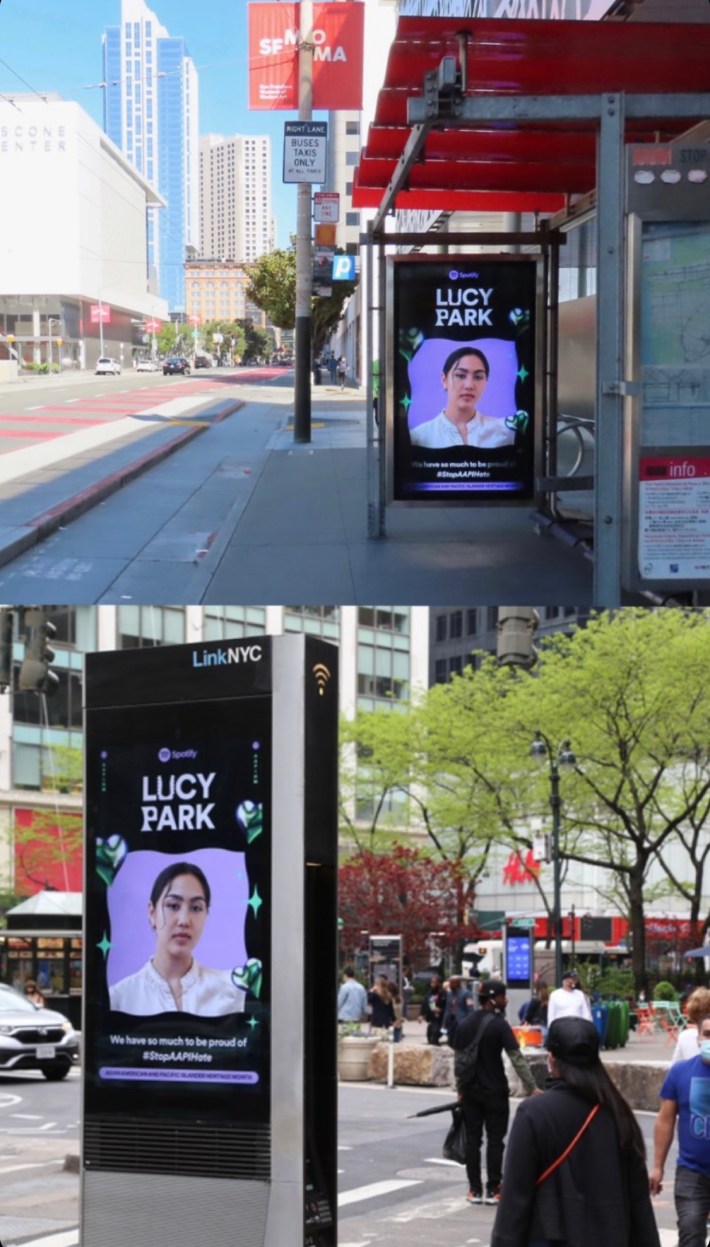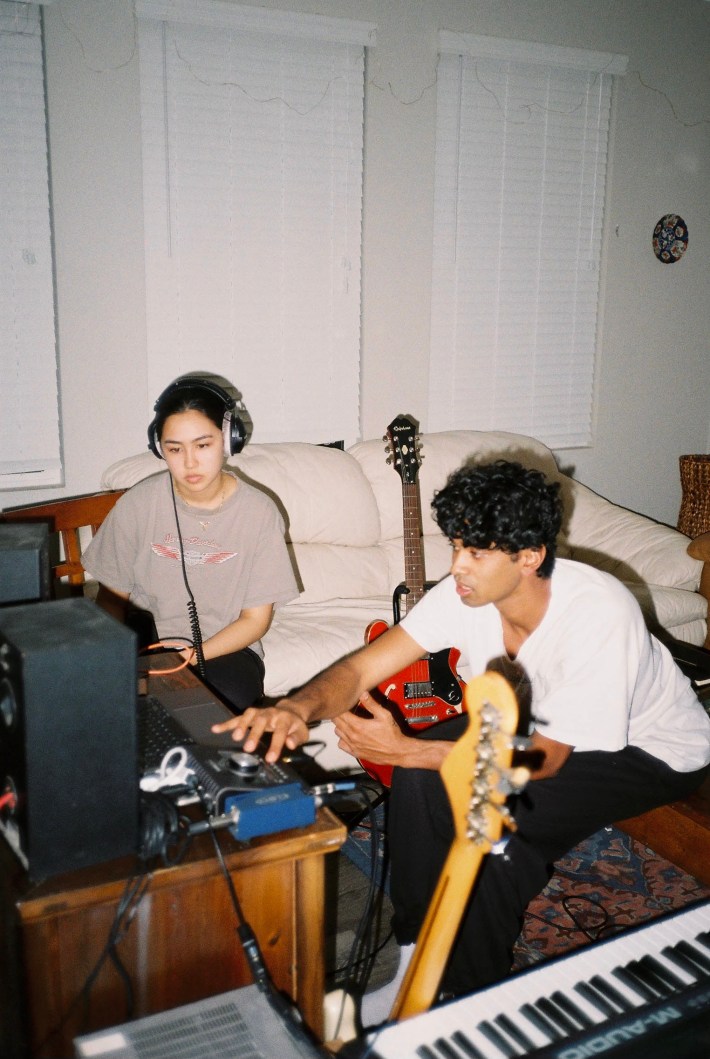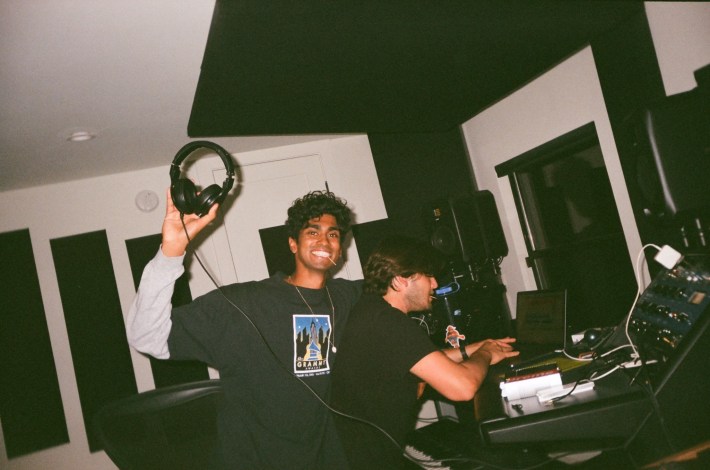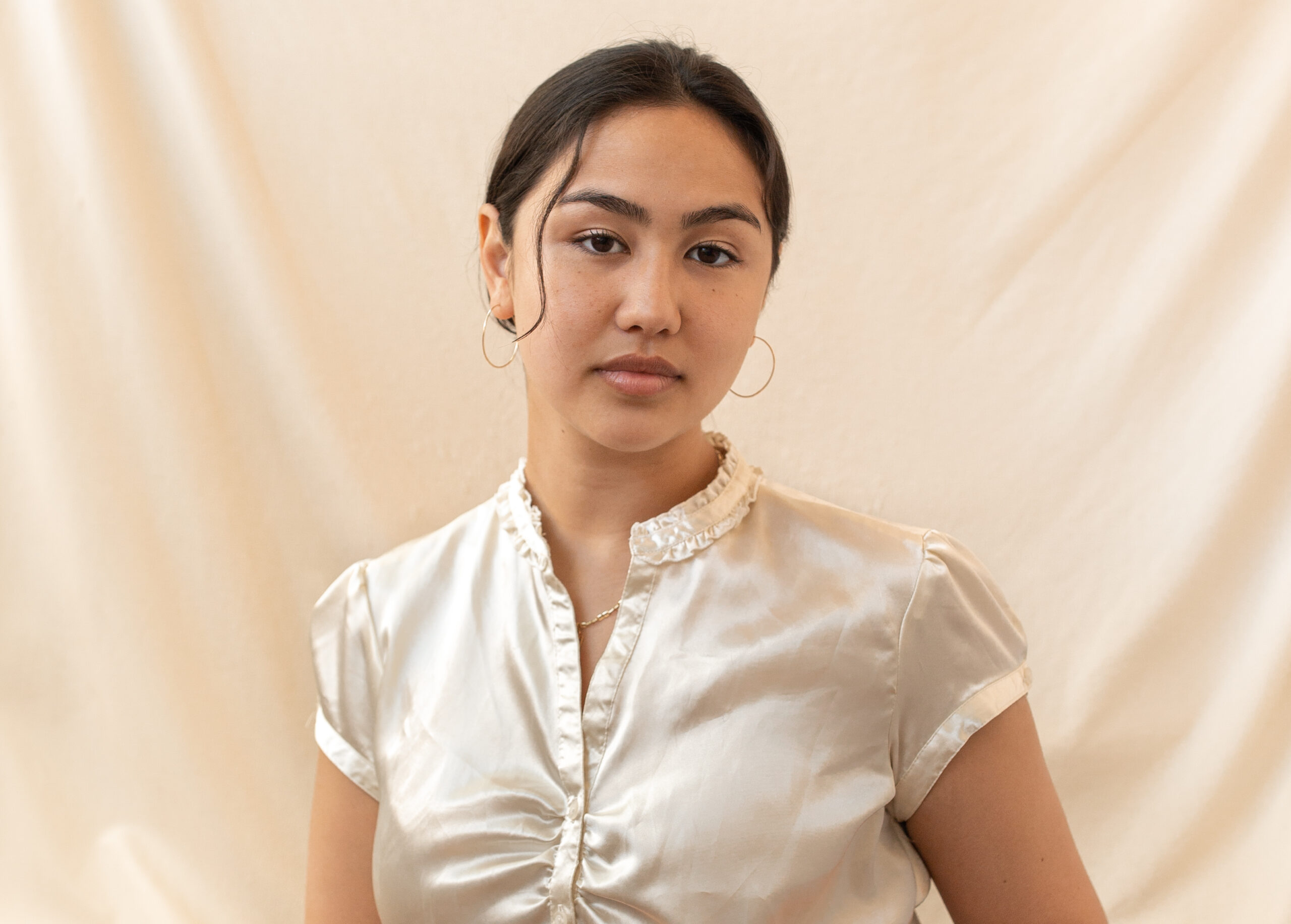[dropcap size=big]I[/dropcap]n a time clouded with uncertainties, music was the only reliable constant. For new R&B artist Lucy Park, the pandemic solidified her pursuit of happiness.
“COVID forced people to be with themselves, and for me, music was the only thing keeping me sane,” she said.
Park was home in London when the stay-at-home orders took effect. As with many people, the first few weeks were agonizing, but she found therapy in creativity. She took a deep dive into music of all genres, finally decluttering her list of albums to listen to the ones she kept attentively.
In the last few weeks of her remote spring semester at Pitzer College in Claremont, California, Park needed an outlet. Before the pandemic, virtual sessions seemed impossible; there would be a lag, two people couldn’t synchronize their sound, and the inevitable “poor connection” would appear at the worst moment. Despite all the odds, once Park gave it a try, she didn’t look back.
She started daily FaceTime sessions with songwriter and producer Anoop D’Souza. Over the months that she could not leave the UK, they created something beautiful: a deep, invested love for their art. Together, they created “Rain,” Park’s most famous song on Spotify.
Walking on water
Holding you near
I'm hoping if God don't break you
We can stay right here
'Cause your love is like rain on my skin
It softens the surface
Sinking fast don't know how to act
And it's overcast
When I drift away from you
You pull me back
But we'll never last
'Cause I'm going mad
As I lose myself in you
“As soon as we released ‘Rain,’ my inbox exploded,” Park said. Every day following the song’s release, she was on the phone with record labels, feeling both thrilled and terrified.
The success of “Rain” taught Park integrity, control, and patience. She said that some young artists could accidentally trust the wrong people in the industry, unknowingly limiting their future careers. Park’s identity as a Japanese and Korean American woman, and her rookie status in the music industry, puts her in a vulnerable position. Instead of signing with a record label after their “Rain” release, D’Souza, Park, manager Chase Brill, and musicians/writers Cam Johnson, Dylan Neustadter, and Rob Aragon decided to start their own record label, After Dinner Records.
With the recent rise in Asian hate crimes, Asian voices across the country are being heard for the first time. This includes music. As a part of Asian American and Pacific Islander Heritage Month, Spotify selected Park to appear in its campaign throughout San Francisco and New York City as a part of its effort to magnify AAPI artists.
“It’s not as easy for people of color and for women to get access to different spaces, different people, different conversations, and different industry knowledge,” she said.
Last year, Spotify launched its first campaign to “amplify” AAPI voices in May, but it’s been nearly three decades since Congress permanently designated the month as AAPI Heritage month, and companies are just now hopping on board with campaigns recognizing the BIPOC community at large.
“We’re also refreshing a number of playlists with updated covers highlighting AAPI and mixed-race artists, as well as adding new songs for listeners to enjoy,” Spotify said in a statement. A USC Annenberg report on the Billboard’s Hot 100 Year-End chart showed that the gender gap has widened in recent years. In 2020, 80% of artists were male compared to 72% in 2016.

Although female representation declined, the number of BIPOC artists rose, increasing by 7% from 2017 to 2020. Most artists of color were likely to appear on the charts in the genre of R&B/Soul (92%), followed by Hip-Hop/Rap (87%) and Pop (36%).
After Dinner Records’ business model is family, instead of individually signing to different record labels, Park became part of her own, creating a buffer between herself and the unpredictable music industry.
“We hope that we can be a model for future generations of young artists who see like, ‘hey, we can do this from our kitchen, we can do this from our living room, and be just as successful as everybody else,’” Park said.
D’Souza said their inspiration for After Dinner Records came from manager Jonathan Azu, founder and CEO of Culture Collective, a management firm that aims to promote “diverse and inclusive leadership in entertainment.” When D’Souza first met Azu, he looked for industry advice and feedback on their “Rain” release.
Azu spent over 20 years in the music industry, leaving his executive role at entertainment powerhouse Red Light Management to start his own management firm. He said he reached a point in his career where he’d achieved many of his goals, but when he looked around the room, he was often the only person of color standing there.
“I wanted to give artists of color an opportunity to sit across the table with someone who could identify with them as being underrepresented minorities in this industry,” he said.

Listening to “Rain” for the first time, Azu said the captivating imagery that Park created piqued his interest. He was sold after developing a relationship with D’Souza, Park, and Brill. D’Souza noted that Azu took their team under his wing, becoming an invaluable mentor truly advocating for their success.
Azu said he hopes to create the stepping stones for marginalized artists to have the opportunity to walk down a path, build a career and connect with their fans on a level to have a lasting impact.
Last month, Park released her first EP, “Before I Speak.” She describes it as a little snapshot in time. Her favorite song, “After All,” uses Japanese-influenced imagery to reflect on how her identity has shaped her life.
Somber cranes will fly
You won’t run my mind no more
Origami skies
Empress of design
Spill over the lines you draw
Curvature divine
D’Souza and Park spend nearly every day together writing new music, playing with old songs, and testing different energies in their creations. D’Souza describes Park’s ability to invite nuance and spontaneity like a drop in the water; her grounded spirit starts a ripple effect that works in harmony with others.
Park said that without D’Souza’s innate ability to hear what’s missing from a song, the dynamic evolution of her music would be lost.
“He’s very honest and gentle with advice. He’ll say like, ‘I feel like if you worked on this, everything could change,’” Park said.
The two artists grew up in different worlds. Park moved between London, Tokyo, and Hawaii, while D’Souza describes himself as one of the only kids of color growing up in Oklahoma City. He remembers hearing records from Amadou & Mariam, Santana, and Shaggy all playing on the same night. Both his parents emigrated from India, so he describes his music influence as an eclectic mix of everything good.
The summer leading into college, D’Souza’s best friend died. Lost in loss, music was the only thing that could transport him away. He spent hours playing with different mixes of songs, eventually growing a following on Soundcloud and later investing all his savings into DJ equipment. By his sophomore year at Occidental College, he found his passion; producing, a field that gave him “a million and one” outlets.
“If I can make pop music, and if it just gives someone their bop in the car, that's a win. If I can make an R&B track that helps someone through a relationship, that's a win,” he said.

D’Souza hopes to create limitless music that positively impacts as many people as possible. This mission resonated with Park from the beginning. Similar to D’Souza, Park grew up with music filling her house. Both her dad and older brother played the ukulele and guitar, but she too didn’t find her own path to music until the end of high school.
After four years, Park found her voice. At first, writing her own music looked like a frustrating blank canvas, but collaborating with others changed her world.
“I have the option to write about myself, talk to someone about whatever I'm thinking, and then write a song. Or I write something that has nothing to do with me and kind of just have fun with lyrics and making up scenarios that the songs are about,” Park said.
When D’Souza and Park think of their audience, no specific image comes to mind. Park said they intentionally try not to say too much about the meaning of each song so that people have their own experience with it. She said her song “True to You” best fits the example of a song created from an energy.
As the After Dinner Records crew sat together in the studio, everyone shouted out ideas fitting a light and flirty energy that became “True to You.”
I know what you want
You should be alone with me
Colour changing tone, silver mirror in the backseat
Tangerine and gold, velvet running down my body
Maybe you don't see it, but I know you're gonna like me
True to you, baby
True to you, sayin' that you're never gonna play me
As the young R&B artist continues honing her craft, she looks forward to the release of her next EP, playfully describing it as “grown Lucy.” She said it will take inspiration from favorite artists Lauren Hill, Amy Winehouse, and Jorja Smith.
“Young people of color are creating new sounds,” Park said. “They’re adding so much more to the music influencing our world, and you can’t deny how much it’s shaped the industry and will continue to shape it.”






